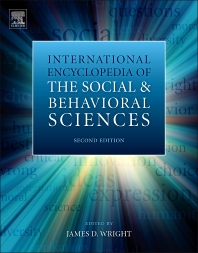From The International Encyclopedia of the Social & Behavioral Sciences:
The term ‘white-collar crime’ was coined by Edwin H. Sutherland, in a 1939 presidential address to the American Sociological Society, as ‘crime committed by a person of respectability and high social status in the course of his occupation’ (Sutherland 1940 1949, p. 9). In the better part of the century that followed, scholars continued to disagree about the definition of the concept, offering a vast collection of synonyms—upperworld, elite, suite, of-the-powerful, corporate, organizational, occupational, employee, avocational, trust, business, economic, official, governmental, or political crimes, illegalities, offenses, violations, deviance, misconduct, harms, or violence—that give linguistic expression to conceptual, theoretical, and ideological differences. But no consensus emerged; most scholars agreed to disagree. Sutherland’s evocative label masks a conceptual babel. The study of white-collar crime was born of selection bias. Sutherland argued that because the offenses of corporations and white-collar workers are not represented in the official statistics subject to criminological research, scholars misunderstand the nature, causes, and consequences of crime and its control. This entry considers how some of the standard topics in criminology—the social organization of offending, victimization, enforcement, prosecution, punishment, and criminological theory—are transformed when one looks in the unconventional places captured by the varied conceptions of white-collar crime. Ironically, because of limited access to data, the selection bias that white-collar crime scholarship seeks to undo simultaneously threatens its own integrity. The entry considers the methodological and normative impediments to the study of crime and justice in the suites, the distortions in our understandings insinuated by selection bias and by efforts to correct for it, and what is required of rigorous scholarship. Perhaps nowhere has James S. Coleman’s influential call for a new social science attuned to the transformation of social life occasioned by the displacement of natural persons by ‘purposive corporate actors’ been better realized than in the study of white-collar crime. This scholarship has made problematic the difficulties of regulating organizational life and insuring norm compliance within organizational contexts. White-collar crime offers a bridge to the new social science and a compelling window onto the changing structure of social life.

